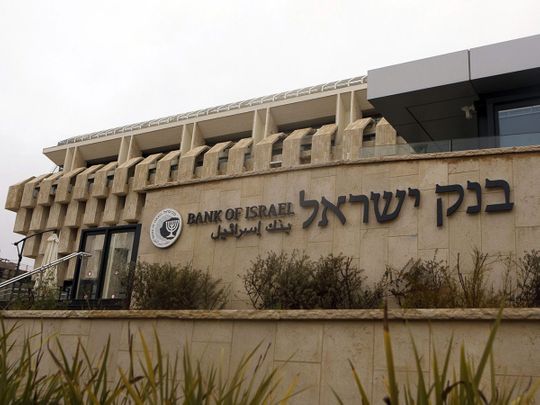
Tel Aviv: Israel's biggest exporters are bracing for the end of central bank support that's helped them stay competitive during the pandemic, a move they say may weigh on a $100 billiion industry crucial to the nation's economic rebound.
The Bank of Israel is close to exhausting a $30 billion dollar-buying programme that's reined in gains in the shekel and made exports cheaper to foreign buyers while the nation battled Covid-19. With the economy on the mend, and Governor Amir Yaron signaling July 5 that the program was a temporary salve, companies from Teva Pharmaceutical Industries Ltd. to Israel Aerospace Industries Ltd. are on edge.
"We're living with uncertainty," said Natanel Haiman, the head of economics at the Manufacturers' Association of Israel, a Tel Aviv-based organization that groups more than 1,850 companies accounting for more than 90% of the country's industrial base. "It's a daily battle to keep the production lines moving," partly because of the exchange rate.
Policy diemma
The debate over the programme mirrors the dilemma facing policy makers the world over as central banks consider how quickly to remove stimulus measures enacted as the pandemic erupted. In Israel, shekel policy provides an additional ingredient. The currency has appreciated more than any major counterpart in the past decade, eclipsing even the Swiss franc and the euro, and hobbling the exporters that account for more than a quarter of the $400 billion economy.
Take Tel Aviv-based Healthy.io, a seven-year-old company that adapts smartphone cameras for kidney-disease detection at home. Founder and Chief Executive Officer Yonatan Adiri says more than 20 per cent of the cash that his company raised over the past five years has effectively been lost because of the shekel's appreciation. Now he's considering moving operations to the US.
"You raise money in dollars and you spend most of it in shekels, especially in the early years," he said. "It's now as cost-effective for me to build a team in Boston or London as it is in Tel Aviv."
Israel's gross domestic product is forecast to grow 4.8 per cent this year, after shrinking 2.5 per cent in 2020 - its sharpest downturn on recored - as the country benefits from one of the world's fastest vaccine-rollout programs. Unemployment has dropped, inflation is in the middle of the central bank's target range and the country's current-account surplus has risen to $5.85 billion.
It's that backdrop that provides the Bank of Israel with room to pare back the dollar-buying, economists say.
The programme is "a stimulus policy that is relevant for crisis times, but we're not in a crisis now," said Modi Shafrir, chief strategist in the finance division of Mizrahi Tefahot Bank Ltd. in Ramat Gan, Israel. The central bank "will be less aggressive" in the second half of this year, he said.
Rising shekel
The Bank of Israel has already bought more than $25 billion out of the $30 billion target set for 2021. Governor Amir Yaron said at the bank's July 5 policy meeting the program has been "a special plan for a special situation." The next meeting is Aug. 23.
Uri Barazani, a spokesman for the central bank in Jerusalem, said last week the current policy remains unchanged. He declined to comment further.
The shekel has strengthened in five of the past six years versus the dollar, rising to a 24-year high at the end of 2020. It has depreciated 0.5 per cent in 2021, trading at 3.2364 per dollar as of the end of Thursday.
The central bank has bought about $135 billion since first adopting dollar-buying under former Governor Stanley Fischer 13 years ago. That has lifted foreign reserves to almost $200 billion, compared with about $30 billion when the plan began.
"The Bank of Israel doesn't want to distort the exchange rate for a long time," said Alex Zabezhinsky, the chief economist at Meitav Dash Investments Ltd. in Tel Aviv. Governor Yaron's comments have opened up the possibility of a cut in dollar-buying in the coming months, he says.
"The link is to the economy at the end of the day."








